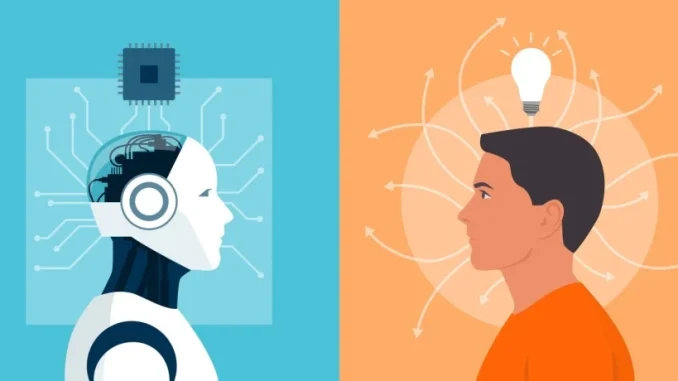
Artificial Intelligence (AI) is rapidly transforming various industries and sectors, and its impact on the job market is significant. Some experts predict that AI will replace many jobs, while others believe that it will create new job opportunities. In this article, we will explore the impact of AI on the job market and the challenges and opportunities it presents.
The Impact of Artificial Intelligence on the Job Market:
AI is transforming the job market in many ways. On the one hand, it has the potential to automate many tasks that are currently performed by humans, leading to the displacement of workers in certain industries. For example, AI-powered machines and robots can perform tasks that were previously performed by humans, such as manufacturing, customer service, and data entry.
On the other hand, AI can also create new job opportunities. As AI technology continues to advance, it is creating new roles and responsibilities in various industries, such as AI engineers, data scientists, and machine learning experts. These jobs require a unique set of skills and knowledge, such as programming, data analysis, and critical thinking.
Challenges of AI in the Job Market:
While AI presents opportunities for job creation, it also poses challenges for the job market. One of the primary challenges is the displacement of workers. As AI and automation continue to replace certain jobs, workers in those industries may struggle to find new employment. This can lead to economic and social inequality, as well as increased job insecurity.
Another challenge is the need for new skills and training. As AI technology advances, it requires new skills and knowledge to develop, operate, and maintain. This means that workers need to continually learn and adapt to stay relevant in the job market.
Opportunities of AI in the Job Market:
Despite the challenges, AI also presents significant opportunities for the job market. For one, it can help create new, higher-paying jobs. As AI and automation take over routine tasks, workers can focus on higher-level tasks that require creativity, critical thinking, and problem-solving skills.
Another opportunity is the potential to increase productivity and efficiency. AI technology can automate tasks that were previously time-consuming and repetitive, freeing up workers to focus on more complex tasks. This can lead to higher-quality work and greater efficiency, which can benefit both workers and employers.
Conclusion:
AI is transforming the job market in significant ways, and its impact is likely to continue in the years to come. While it presents challenges, such as displacement and the need for new skills, it also offers opportunities for job creation, higher pay, and increased efficiency. As the job market evolves, it’s crucial for workers to stay informed about the latest trends and technologies to stay competitive in the workforce.
Leave a Reply